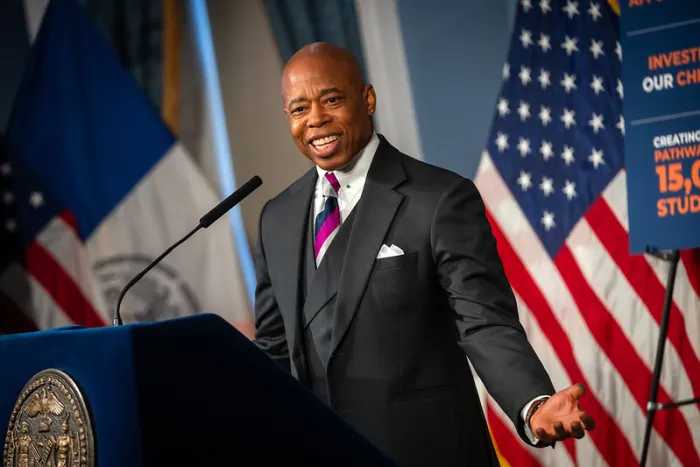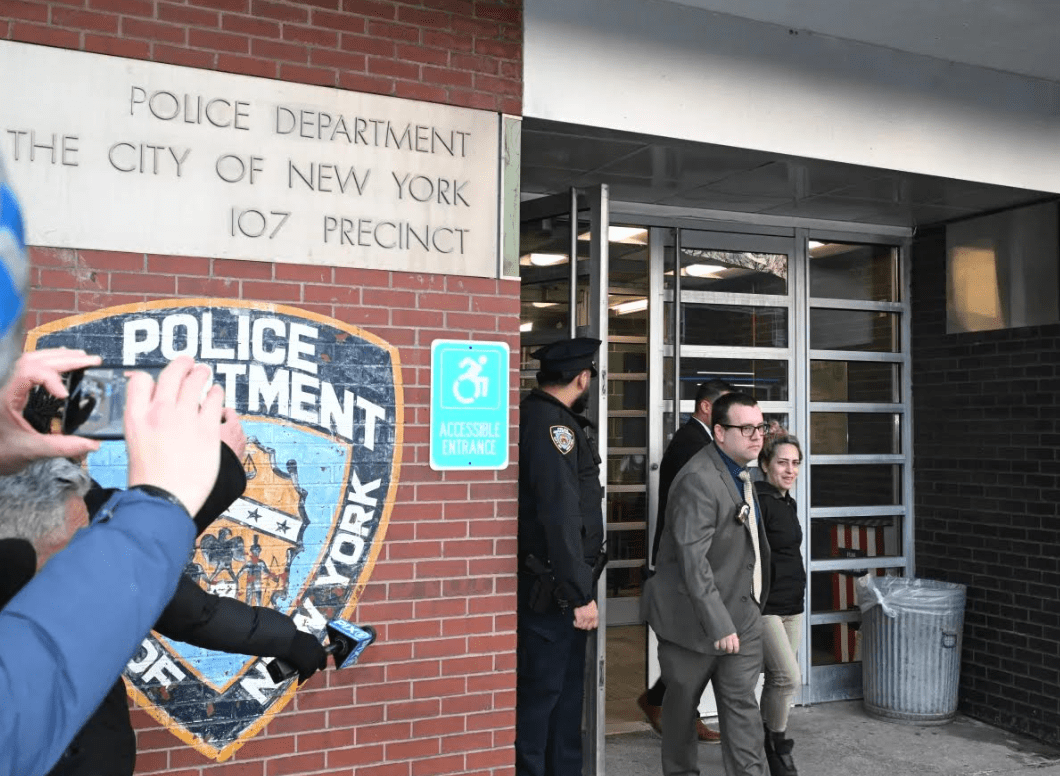The City Council wasted no time Thursday in overwhelmingly approving an “advice-and-consent” measure that would give lawmakers significantly more sway in the mayor’s appointments to lead city agencies.
The vote happened even though Mayor Eric Adams is no fan of the legislation, and has made moves that could halt it in its tracks. The vote comes at a time of already-inflamed tensions on both sides of City Hall, and sets the stage for yet another heated battle between the council and the mayor.
The 51-member chamber passed the legislation just two weeks after Speaker Adrienne Adams introduced it, with 46 members approving it. Just 4 members voted against the bill, including conservative Democrat Kalman Yeger (Brooklyn), who criticized how quickly it was adopted.
During a news conference before the vote, Speaker Adams described the bill as a good government measure to implement a process commonly used throughout the country, aimed at making New York City mayoral appointees more accountable to the public.
“Advice-and-consent moves the appointment process out of the shadows,” the speaker said. “Allowing greater transparency and public engagement is good government and can be beneficial for nominees by providing an opportunity for them to demonstrate their qualifications, hear about the range of issues they will confront and build positive relationships with the council and the public they’re serving.”
Before casting her vote in favor, progressive Council Member Sandy Nurse (D-Brooklyn) said the bill would help balances the scales of city government, where the mayor has outsize authority.
“This bill addresses what I think is a fundamental flaw in our local government, which I think is a concentration of executive power,” Nurse said. “And despite being the largest municipality in the country, this system allows our country’s largest city to be heavily governed by a single personality.”
Even though the bill passed the council, city voters must decide its fate via a ballot referendum. But that may not happen if Mayor Adams gets his way.
Last month, the mayor launched a Charter Revision Commission which could block the measure from appearing on the ballot this November if it advances its own proposals before an Aug. 5 deadline.
The mayor’s team has railed against the measure, citing concerns that it could jam up the operations of city agencies and politicize the appointment process.
Mayor Adams is also expected to veto the legislation — a move the speaker indicated she is ready to override. Deputy Mayor for Communications Fabien Levy, in a statement, blasted the council’s move without indicating whether or not the mayor would veto the bill.
“While the council continues to focus on rehashing a 140-year-old political battle that’s already been debated, our administration will continue to focus on the working-class people of this city who want us to focus on how we can protect public safety, rebuild our economy, and make this city more livable,” Levy said.
Rebutting opposition
The speaker also pushed back on contentions by the mayor’s team that adding advice-and-consent for more commissioner posts would slow down the workings of city agencies by leaving them without leaders and that it would make the process far more political.
Speaker Adams said that the bill stipulates the council must act upon a mayoral nominee within a 30-day window of the nomination, and makes clear that a first deputy commissioner or mayoral designee will run a city agency in an acting capacity until a new leader is chosen.
Additionally, she directly addressed a comment from the mayor’s chief counsel, Lisa Zornberg, who earlier this week compared the advice-and-consent bill to the political maneuvering of Tammany Hall — the infamously corrupt political machine that controlled New York City politics in the 1800s and early 1900s.
“Advice-and-consent is a safeguard or even anti-Tammany Hall-like environments, where commissioner positions are doled out simply because of their political allegiance to one person or another, or to pursue some other interests beyond the public’s,” Speaker Adams said.
What the bill covers
The bill would expand the council’s “advice-and-consent” power to an additional 20 mayoral appointees to lead municipal agencies — including the heads of the Departments of Social Services, Health and Mental Hygiene, Buildings and Housing Preservation and Development.
Currently, the council only has advice and consent for two top administration positions: the corporation counsel — who leads the city’s Law Department — and the city Department of Investigation commissioner. Additionally, the council has approval authority over a couple dozen appointments to various commissions and boards.
The legislation now covers 20, rather than 21 commissioner posts, as it originally did, after it was amended late last week to remove from the bill the Emergency Management and Veterans Affairs commissioners and add the City Planning Commission chair.
Speaker Adams said the changes were made to avoid including commissioner posts that are required to be solely appointed by the mayor by state law.
While the speaker has insisted the legislation is not a response to the current mayor, her office and some council members have said it better protects against executives appointing underqualified individuals to high-level positions — something he has been accused of.
“We wouldn’t even be here today if it wasn’t absolutely necessary, because we feel, I feel speaking for myself, that I’ve seen appointments made that are somewhat questionable,” City Council Member James Gennaro (D-Queens) said. “And so I think the mayor’s administration, in my opinion, was kind of asking for this and now they’re going to get this.”
Gennaro declined to give examples of which of Adams’ appointments he sees as questionable. But several have come under scrutiny, including former Buildings Commissioner Eric Ulrich, who was indicted on corruption charges last fall, and Louis Molina, who was heavily criticized for how he ran the Department of Correction and has now been appointed to lead the Department of Citywide Administrative Services.
Gennaro further charged that the mayor’s Charter Revision Commission, which he formed late last month, was established for the “sole purpose” of blocking the advice and consent bill.
However, the mayor and his team disputes that the commission was set up for that purpose. Instead, they argue it was a response to concerns from some community advocates over how the council has handled legislation relating to public safety and the financial impact of their lawmaking on the city.






































